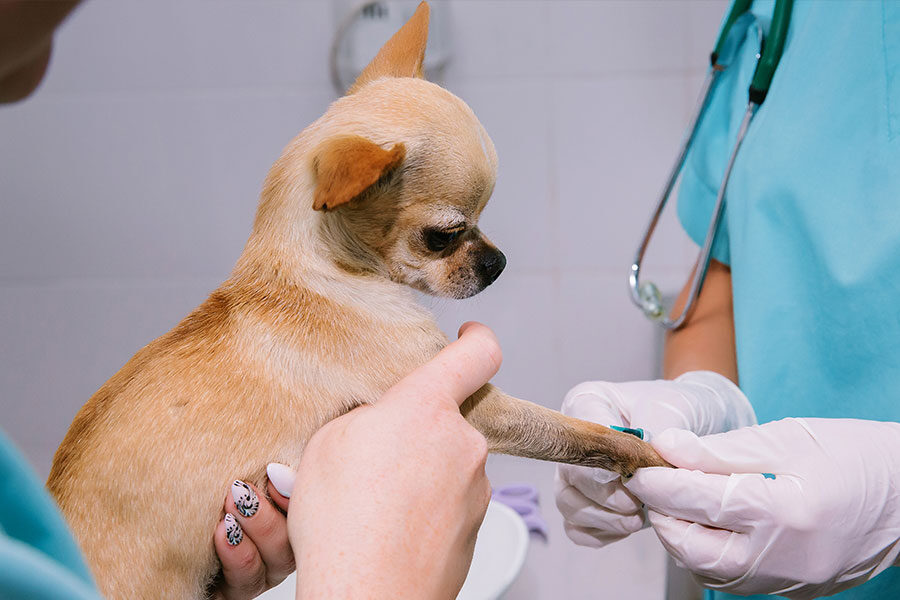Vets often advocate getting blood tests done for their pets. Blood tests identify any potential risks early on and help keep a steady track of your pet’s health. For the extra expense, the blood test may incur, pet parents often neglect to get these tests done on a regular basis. In the words of a wise sage, don’t do that. Here are 5 main reasons why pets need regular blood tests:
Your Pooch’s Health- During the very first visit to your local vet clinic, vets generally recommend a blood test. A blood test assists in establishing a baseline for future blood results, even if your pet appears to be in good health. This allows you to keep track of your pet’s health and ensure that preventative care is given to lower the chance of illness in the future. Blood testing will also determine whether your pet requires a booster vaccination subsequently.
Pre-Surgery Necessity- Blood tests will help ensure whether all important organs are functioning properly in case of surgery. This also allows the vet to provide any medication in advance to improve blood test results, ensuring that the surgery is successful and your pet comes back stronger.
Viral or Parasite Infections- A blood test may reveal a viral, bacterial, or parasitic infection when strange behaviour is observed in pets. For instance, infections cause more white blood cells to appear in blood tests. It is crucial to perform blood tests on dogs to check for signs of heartworm, Lyme disease, canine distemper, or kennel cough and on cats to look for leptospirosis, feline leukaemia virus, or feline immunodeficiency virus (FIV) symptoms.
Good Ol’ Reassurance- As a pet parent, your concern about your pet’s health can be too worrying sometimes. No one likes being surprised with an illness. Regular blood tests prevent just that. Identifying early symptoms not only helps you give your pet the care it needs but is also easy on your pocket. Now you can sleep with no worries!
What Do Blood Tests Reveal?
Common tests examine the liver, kidneys, and pancreas for dysfunction. The results of the blood test will reveal specific proteins, enzymes, and white blood cells that could point to an underlying disease. Testing for enzymes might also reveal potential muscle inflammation and injury. Additionally, red and white blood cells are examined to determine your pet’s immune system reactions, such as anaemia, inflammation, or infection.
Blood tests also examine the immune system, how well the body’s organs are working, and whether a disease is present or active. To study an organ’s function more closely, some tests can be used to stimulate or suppress the organ. Even more recent testing can check your pet’s genetics for particular diseases or infections.
How to Prepare Your Pet for a Blood Test?
Blood tests are of two types, routine and special blood tests. While routine tests provide an overview of your pet’s health, special tests are carried out to examine or monitor any specific issue. Let’s see how you can prepare your pet for both of these tests:
Routine Tests
Light fasting: If possible, do not feed your pet for 6 hours prior to your appointment. Fasting steers clear of Lipemia, fat droplets produced after eating that may interfere with some blood tests or cause difficulty in interpreting the result.
Stay Hydrated: Especially in a warm, humid climate like ours, it is necessary for your pet to keep hydrated. Even mild dehydration can interfere with the test results, so be cautious.
No Active Play: Right before your appointment, avoid exercise or any active play, as physical activity can cause changes in the test results.
Slash their Stress: A doctor’s visit can be frightening to anyone, especially our little friends. Handle your pets calmly, talking in a soothing voice tone to lower anxiety. To minimise your dog’s stress, you can keep them on a leash, so they are not frightened or upset by other animals present. For cats, you can bring them along in a carrier with a familiar, cosy blanket or toy. Your cat will feel secure and is less likely to try to escape.
Special Blood Tests
Depending on your test, the preparation may vary. Vets provide special instructions prior to the appointment, but here are some things you can do:
-Strictly avoid feeding your pet for 12 hours or more.
–Give them the medication at the specified time. For example, if medication is to be given 3-5 hours before the appointment, you may need to change the time of their regular dose.
-If you are instructed to not give any medication before a certain time prior to the appointment, withhold the medication even if that means delaying or skipping a dose.
For both these tests, remember that your vet’s words are gold. Follow every instruction to get accurate results.
How Often Should Pets Have a Blood Test?
Two variables determine how often is the need for a blood test – age and your pet’s condition. In case of a problem, blood tests are usually performed before the anaesthetics are given. As pets age faster than humans, yearly screening for any developing conditions is recommended.
Your pet’s safety and health are your utmost priority, and blood tests, among other factors, help you determine that. To book a consultation with our expert vets, you have PawPurrfect!







